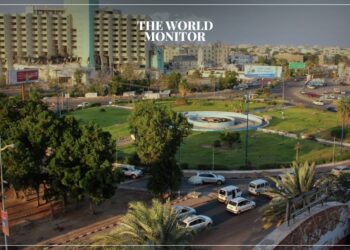Israeli Prime Minister Benjamin Netanyahu, in his first interview with an Israeli channel since the beginning of the war on Gaza, stated that Israel is prepared to halt fighting in Gaza for a brief period in exchange for Hamas releasing a number of Israeli prisoners. However, he emphasized that Israel will not commit to a complete cessation of hostilities until its objectives are achieved.
Netanyahu added in the interview with Channel 14: “I am prepared to agree to a partial deal that returns some prisoners… but we are required to continue fighting after its cessation to achieve our goals,” he said.
He further stated that the war’s objectives include the release of all prisoners, the elimination of Hamas’s military capabilities, and its ability to govern. He pointed out that the only way to achieve this is to prevent Gaza from posing a threat to Israel again. He mentioned that the phase of the war in “Rafah,” which he described as the “tree” phase, is nearing completion, after which “mowing the grass” operations will continue indefinitely, referring to operations against resistance factions even after the war ends.
Netanyahu indicated that after this phase, attention will shift to the northern front for defensive purposes and to facilitate the return of all residents who have been displaced from their homes in the north due to escalating clashes with Hezbollah.
He stated that any agreement regarding the northern front would be on Israeli terms. Even in the south, he indicated that he is not prepared to stop the war without eliminating Hamas, as he put it.
Netanyahu added that Israel is ready to handle a scenario where the electricity infrastructure is destroyed in case of war with Hezbollah, but he cannot elaborate on this matter.
Last week, Israeli Electricity Systems Management Company CEO Shaul Goldstein stated that Israel is not prepared to deal with damage to the electricity infrastructure in the event of a comprehensive war with Hezbollah.
Netanyahu said that on the northern front, agreements will not be just on paper but will involve actually displacing Hezbollah from the border area. He emphasized his commitment to returning Israeli citizens who have been displaced from their homes in the north due to escalating clashes with Hezbollah.
Netanyahu stressed that Israel is capable of fighting on multiple fronts.
He downplayed the significance of protests calling for the overthrow of his government, saying that they want to overthrow the government and each time they have different excuses. He indicated that he does not believe the protesters represent the majority of the Israeli people.
Netanyahu said that if his government collapses, a left-wing government will come in and agree to establish a Palestinian state. It will also pass laws to close the channel’s studio where this interview is conducted, he said.
He added that settlement in Gaza is illogical, contrary to the views of the extreme National Security Minister Itamar Ben-Gvir, who calls for settlement in Gaza.
Netanyahu acknowledged disagreements with the military establishment, saying he will continue to lead Israel’s security in agreement with the military leadership. He noted that decisions are ultimately made in agreement, acknowledging existing differences in perspectives but refraining from elaborating on them.






